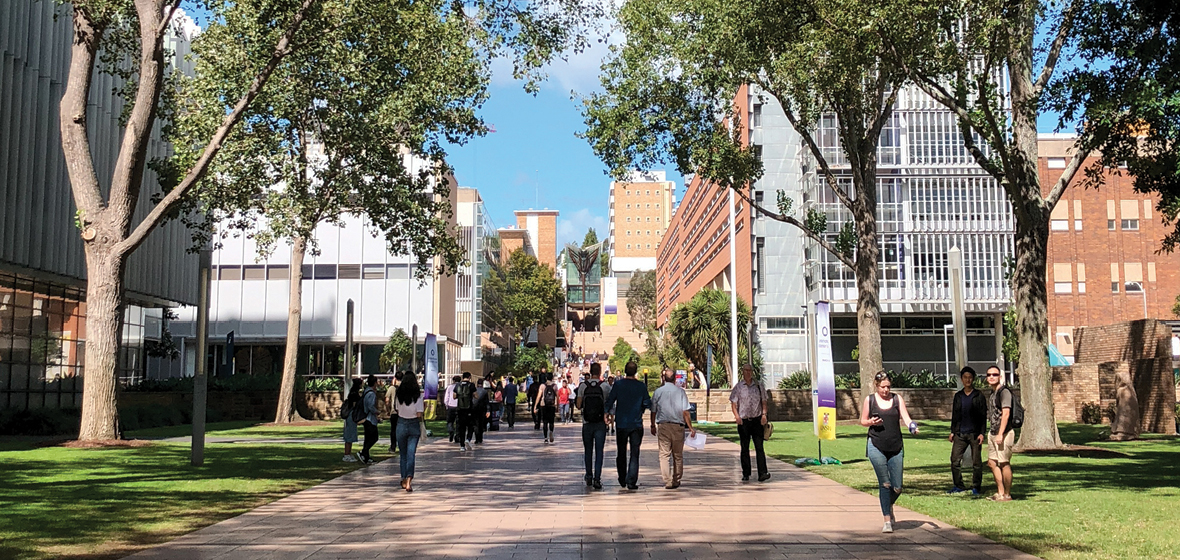We are excited about the opportunity for UNSW Law to set an Australian and world standard in legal practice education.
The skills lawyers need are evolving as our world grows more technical. So legal education must also change.
When I became Dean of UNSW Law in 2016, I knew I had a lot to learn. I had spent time in practice at a large commercial law firm, but that was a long time ago. Even though I have practised in the years since as a part-time barrister, this did not prepare me for the challenges facing the profession.
My response was a listening tour involving more than 100 meetings in Australia and overseas with large and small firms, non-government organisations, government agencies, banks and other employers that take on law graduates. I asked leaders across the sector their thoughts on the future, and what they were looking for in their employees now and over the next five years.
I was surprised at the consistency and force of what I heard. I was told time and time again by a diverse range of organisations that change was coming, and that for many this had already arrived. They said the best lawyers would need a different outlook and set of skills.
Most often, I was told that future lawyers would need to sharpen their digital skills. They would need to operate sophisticated, expert systems and be critical users of these systems. A great lawyer would know which system to use, and how to interpret the results in a way that served the best interests of their clients. They would need to know when to ignore the system in favour of human intuition and a more creative response.
Technology was only part of the picture. People also spoke of lawyers needing project management skills and commercial acumen, and an outlook that embraced innovation, as well as resilience to change. Lawyers would more often need to work in multidisciplinary teams, and to take a holistic approach to solving client problems.
It became apparent that educators were not doing enough to prepare graduates for these challenges. Our programs needed to adapt in line with the profession to make sure we give graduates the best chance of success.
UNSW Law has spent years responding to this feedback. It has been reinforced by further annual discussions with law firms and other organisations. These meetings have demonstrated the pace of change has exceeded the expectations of many lawyers.
Our response at UNSW Law has been to rework our curriculum. Technology has been embedded in how we teach, and in our course content, so students are exposed to new technologies and the challenges and opportunities this poses at key points throughout their degree. Cutting-edge electives, such as internships and a course on designing apps to provide legal advice, also provide enhanced opportunities for learning.
We have also entered into major partnerships that permit us to sharpen our research focus. This includes a key venture with the Law Society of NSW to continue the work of its Future of Law and Innovation in the Profession (FLIP) Commission of Inquiry. Our joint FlipStream project, led by Professor Michael Legg, is undertaking world leading research about how technology is impacting the profession, and the opportunities this is creating for legal practitioners.
It quickly became clear that these changes were not enough. Members of the profession told me they wanted to see innovation in the mandatory training that lawyers undertake immediately before they enter the profession. This period of practical legal training is a critical point in the career of a budding lawyer. It is the last opportunity to set them on the right path, and to ensure they are equipped with the skills, aptitude and outlook they need to succeed.
 George Williams, Dean of Law at the University of New South Wales
George Williams, Dean of Law at the University of New South Wales
Despite the importance of this training, it has been more than 20 years since a new provider of practical legal training gained accreditation in NSW. Our view was that the time was right for a new course and a new direction. More could be done to ensure the quality and skills of graduates as they enter the profession.
UNSW Law has spent three years researching and designing a new program of practical legal training. We have done so without preconceptions and have built a program from the ground up with a digital-first approach. Our goal has been to respond to the feedback we received from the profession by building a modern program of practical legal training that is value for money and career enhancing.
I am delighted to say the UNSW program is now open, with the first students now enrolling for term one of 2020. Applications are being welcomed from students from any law school or working for any firm.
The program begins with a five-day, face-to-face workshop, followed by online coursework over 19 weeks and workplace experience in a range of environments including firms, in-house clinics, and community legal centres. Students can also specialise and enhance their skills through an optional practicum. The UNSW program will meet the high standards of our other programs. In 2018, for example, graduates ranked UNSW Law first among Australia’s 38 public law schools for the quality of our undergraduate law program. We will bring the same commitment to teaching our practical legal training students as they transition into legal practice.
The program will use emergent technologies that are integrated, innovative and unprecedented in the practical legal training space. This includes a world-leading teaching platform that will permit students the flexibility to learn ‘on the go’ using mobile devices. The content of the course, developed by subject matter experts, will integrate lessons that simulate the practice platforms being rolled out in the profession.
We are excited about the opportunity for UNSW Law to set an Australian and world standard in legal practice education. We are looking forward to welcoming our first students in February 2020 with a distinctive, practice-ready program that will equip the next generation of lawyers to lead and reimagine the legal profession of tomorrow.




